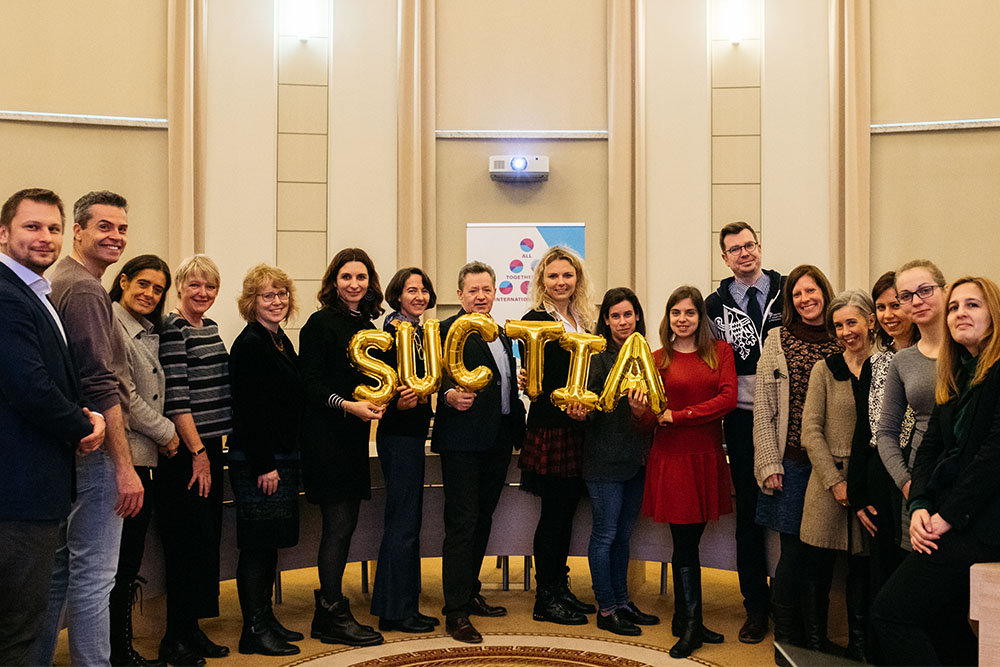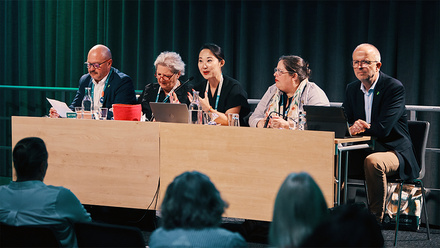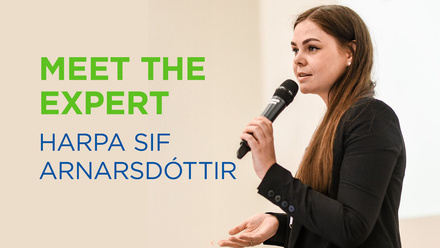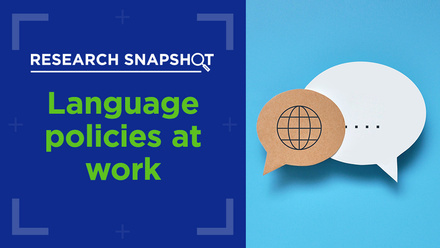Engaging academics in internationalisation: What institutional leaders should know

The ‘Systemic University Change Towards Internationalisation for Academia’ project – also known as SUCTIA – is a project funded by the Erasmus + programme for the years 2019–2022. Managed by Adam Mickiewicz University, Poznań (Poland), the project’s partners consisted of two universities in Spain (URV and UPC), one each in Italy (UniCatt) and Portugal (UPorto), an international consultancy based in the Czech Republic (GII), and three Europe-based network organisations (SGroup, ECA HE and the EAIE). Having recently come to a close, the SUCTIA project has yielded a number of insights that can help institutions more effectively engage their academic staff in internationalisation.
SUCTIA built on the SUCTI project, which ran from 2016 to 2019 and was managed by Marina Casals Sala at Universitat Rovira i Virgili, Spain. The major difference between the two projects is that SUCTIA was designed to support the engagement of academics in the internationalisation process, while SUCTI focused on developing administrative staff as key internationalisation actors and allies. Staff development, internationalisation from within and introducing a systemic change through training were amongst the key focal points in both projects.
To address these objectives, SUCTIA aimed (amongst other things) to develop effective approaches to training academic staff members as a means to strengthen their understanding of and engagement with their institutions’ international agendas. Through a broad range of experiences over the three years of the project, several interesting conclusions about how to engage academics in the process of internationalisation have emerged, which we hope institutional leaders will take careful note of.
Academic ≠ administrative
First, it’s important to distinguish between academic and administrative staff at every higher education institution. No matter how obvious or simplistic this differentiation may seem, it’s something not to be forgotten.
Internationalisation, when undertaken as a process to be followed by an institution as a whole, is quite often based on guidelines embedded in the university strategy. Yet, in order to engage academics in internationalisation, one needs to bear in mind the fact their perspectives and needs can be completely different from those of their administrative colleagues. For example, while position in international rankings matters for the entire institution and central administration, academics may feel that the ranking of their discipline or specific faculty is of greater importance. Similarly, whereas participating in international networks and alliances is of importance to institutional leadership and administrative staff, academics on the other hand may rather strive for participation in international research teams and mobility opportunities.
In a nutshell, engaging academics effectively in internationalisation requires attending carefully to their perspective and constantly keeping in mind the fact this process may mean something different for everyone.
Academics’ internationalisation priorities are unique
Undoubtedly, in order for internationalisation to work most effectively, it has to be meaningful to all stakeholder groups at the university. This means attending thoughtfully to differing perspectives that feed into the process.
For internationalisation to work effectively, it has to be meaningful to all stakeholder groups at the university
Academics care about relationships within their respective fields and networking, as is true in the rest of the university community. Yet in order to advance their academic careers, which includes attending to certain regulations and requirements (particularly in terms of publications and impact in their field etc), their first priorities are often their career trajectory and their discipline. As such, when it comes to internationalisation, they should be offered projects, training and other opportunities that align with these realities.
Context and perspective matter also in terms of offering funds, scholarships or mobility opportunities – an academic in chemistry may have different internationalisation needs than an academic in sociology or languages.
Incentives matter
Again, no matter how obvious it might be, institutions may forget how internationalisation incentives could improve outputs and facilitate the engagement not only of academics but also other stakeholders across the entire institution. The right motivation and encouragement, as well as a clear rewards system for academics undertaking international activities at different levels, could not only build a better sense of the meaningfulness of their international undertakings but also result in tangible benefits for these individuals on the basis of their substantive contributions.
Think of the right resources
It is hard to expect academics, or any staff members, to engage in internationalisation without proper resources provided by the institution. It’s also not easy to perform a task without knowing how to do it properly.
For example, it’s difficult to assume academics will support their institution in securing a higher position in an international rankings exercise if they don’t know what rankings are all about. For this reason, it is vital for institutions focused on internationalisation to invest in all kinds of resources that will assist academics in doing their best work and in understanding how this work fits into a broader (internationalisation) whole. From the right labs and equipment, to high-quality libraries and access to online databases, to the right training, guidance and mentoring in relation to internationalisation – resources make a difference.
Clear communication counts
Sometimes institutions – especially (though not exclusively) the large ones – have a vast range of internationalisation opportunities to offer their staff or some clear-cut instructions that should be followed in terms of internationalisation, yet they are not communicated well enough across the university. It’s usually the central units and offices or staff members already engaged in other international initiatives that are aware of this kind of information – the deadlines, the submission guidelines, the eligibility and application requirements and the benefits that may go along with these opportunities. As much as this is not secret information or a hidden mystery, but rather something ostensibly available to everyone, these details often reach a limited number of academics.
At the same time, there may be overcommunication, whereby academics feel overwhelmed by a large body of information that they find difficult to wade through and align with their specific interests. In drawing academics into the internationalisation orbit, institutions should make communication as targeted and as easily accessible as possible. Does your university have a (internationalisation) strategy? Great – but making sure all academics know this and are aware of the internationalisation possibilities, external or internal, that exist for them is key.
Main take-aways
To sum up, academics are significant members of the all higher education institutions and the ways that they are involved with internationalisation should be thoughtful and deliberate. It’s good to bear in mind that their unique academic perspective matters as much as the context they operate in and the discipline they represent. ‘Internationalising’ academics in Europe’s higher education institutions today isn’t the same thing as internationalising administrative staff. To ensure academics are engaged meaningfully in this work, institutional leaders need to deploy the right incentives, ample resources and targeted communication. Ultimately, the SUCTIA project revealed it’s a great joy and much fun to work with academics as internationalisation allies and champions!
Bear in mind that academics’ perspectives and needs can be completely different from those of their administrative colleagues






